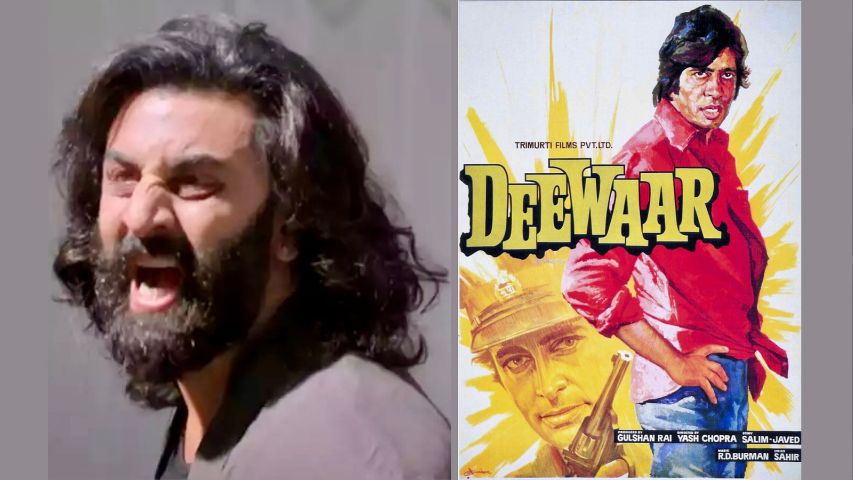
TRENDING: MASCULINITY AND MANIPULATIONS DOMINATE
by Satyabrata Ghosh January 13 2024, 12:00 am Estimated Reading Time: 4 mins, 45 secsFilms were never meant to be a medium to express hate against women, religion, community, or dissenting voices. Lately, however, Indian films are unapologetically weaving targeted hatred into the stories, writes Satyabrata Ghosh.
Last year, in 2023, it was a big turn-around for Hindi Cinema. There was a surge in audiences buying tickets to watch films at the cinema halls across the country. Gone are the days when we were happy to cocoon ourselves at home and binge watch OTT platforms. With high-voltage drama, superb action scenes and stunning VFX, the films from South India captured the imagination of the nation. But then, we also saw the Hindi film industry bounce back, with two massive hits of Shah Rukh Khan in quick succession. His third release, Dunki (2023), continues to make the pan-Indian audience get its worth of well-priced tickets.
Vidhu Vinod Chopra’s 12th Fail (2023), too, was a surprise. A filmmaker and producer, known for his elaborate style of storytelling with film stars, downplayed this time to work with an actor like Vikrant Massey. It will inspire more filmmakers who have stories to tell but not the big budgets to translate them to screen.
However, it’s Sandeep Reddy Vanga, who laid bare the psyche of the emerging nation – a hyper-masculine country, which panders to serfdom instead of the freedom of the mind. In Arjun Reddy (2017), remade in its Hindi version as Kabir Singh (2019), Vanga made it clear that gender equality is not of any consequence to him. Instead, he came out brazenly with a new male egotist in his film, the blockbuster of all times, Animal (2023), and magnified the trauma of a father’s mistreatment of his son). It left viewers gasping. Has time changed, or the audience?
Obviously, it’s the audience that has changed, if we are to cover a long arc. Fifty years ago, India lapped up a lanky angry young man staring at the camera and exploding his rage upon the villains who stole his childhood. The celebrated screen-writer duo Salim-Javed penned the brooding persona of the 1970s in one film after another. And, Amitabh Bachchan portrayed one Vijay upon another but never demeaned a woman despite the fierce wrath of the disillusionment of the characters he played.
In Zanjeer (1973), he restrained his violent streak for the sake of the promise he made to his sweetheart. In Deewar (1975), we saw him distancing himself from the woman who flirted with him and later won her attention. In Kala Patthar (1979), perhaps the most poignant one of the oeuvres, the wrecked Vijay became tender and courteous to a lady, and was triggered by Shatrughan Sinha’s behavior with her, enough to take on a one-on-one with him - the rainy evening scene on the road was a beautiful moment eternalized!

Coming to present times, we see the lead man of Animal tell a woman to lick his shoe! And, when a section of the audience outrages, the actor who plays the part of this woman, Tripti Dimri, publicly justifies the scene and feigns ignorance about any toxicity. With the growing popularity of this film, which incidentally is a comeback for Ranbir Kapoor, a dangerous trend of the demeaning of women has started. Films, however much the box-office might have demanded in previous times, were never meant to be a medium to express hate on women, religion, community, or for that matter, dissenting voices. Lately, Indian films are unapologetically weaving targeted hatred into the stories.
Taking the mood of the nation into consideration, it seems as though decency has been replaced by the boorishness of one individual who is cleverly packaged by a mammoth PR machinery as ‘masculine’ in the garb of religion and hyper-nationalism. Facing incumbency, as the chasm between aspirations and fulfilment grows, this juggernaut is singularly focused on impugning criticism. Such consistent aggression of this machinery at work is what is inspiring the likes of Vanga to translate the pathological denial of principles to popular cinema.
In the wake of 2023, there were signs that a big turn-around was possible. Under the aegis of Rahul Gandhi, the campaign of unity, the Bharat Jodo Yatra, seemed to have silenced the BJP’s effrontery. But the results of the recent assembly elections in the five states have reincarnated the brand, which promised a new India. And, in this new India, intoxicants like chest-thumping and hyper-masculinity overwhelm the pain of unemployment and lack of social and financial security during staggering inflation.
It's a stupendous effort of the brand to keep hope alive. With the mainstream news media projecting it as the invincible ‘Man of the Year’, it’s hard to dream of a country where ‘the world has not broken up into fragments/by narrow domestic walls.’
We will keep praying for a world ‘where the clear stream of reason has not lost its way/into the dreary desert sand of dead habit’, and BJP will be crushing ahead, first, with the Ayodhya Mandir, and then, with the help of the EVMs and the refusal of the Election Commission to install the Voter Verified Paper Audit Trail (VVPAT).
As things stand, masculinity and manipulation are the watchwords of 2024 and to validate these two words there are many producers eager to comply. Yet, gratuitously, what is to be seen is this: will the projection of this hyper-masculinity spill over from the screen to the ground, or will the Bharat Nyay Yatra of Rahul Gandhi, due to begin on 14th January, 2024, have the necessary impact to make the Indians drunk on nationalism and religion wake up and smell the coffee!





-173X130.jpg)
-173X130.jpg)
-173X130.jpg)

-173X130.jpg)
-173X130.jpg)
-173X130.jpg)